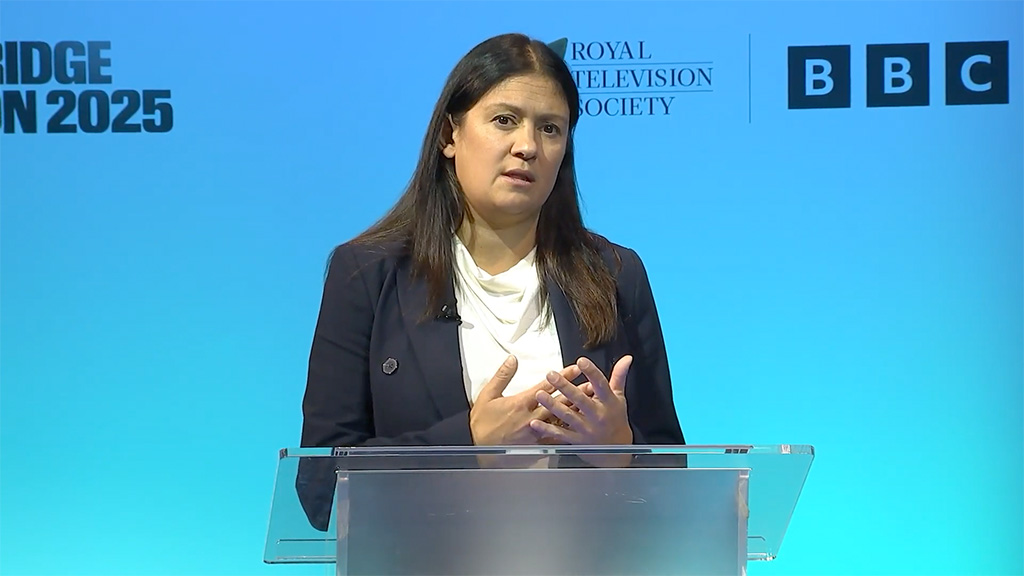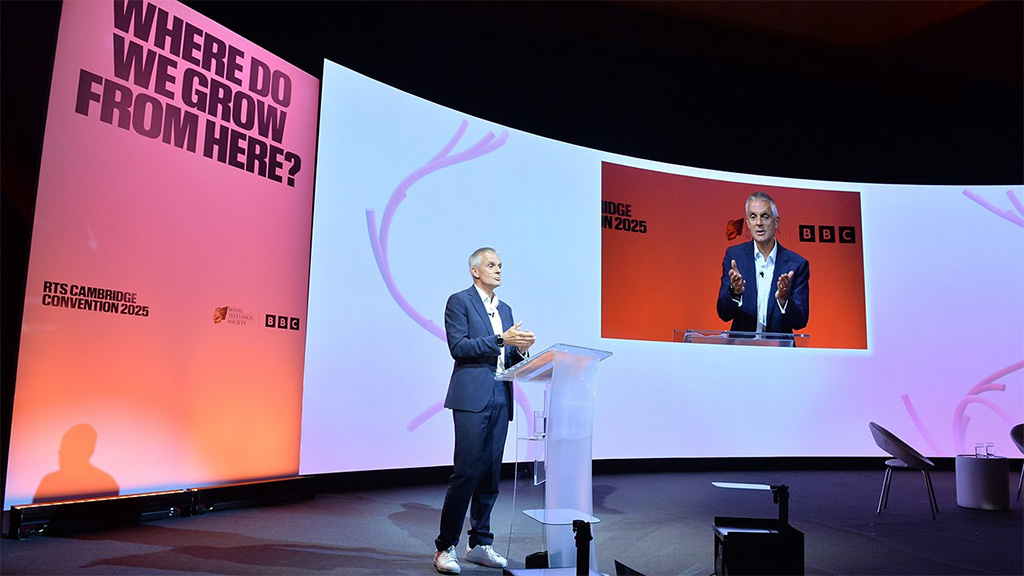Lisa Nandy, the Culture Secretary, says that public service media in the United Kingdom is fighting to be seen and heard in an increasingly competitive market. Speaking to television executives at the Royal Television Society Cambridge Convention, she said that it is fighting with one arm behind its back, dealing with funding shortfalls, changing viewing habits, and regulation that has not kept pace with the media revolution. Public service media providers responded by calling for concessions but have yet to show how they will work together to compete with their online rivals.
The Secretary of State reiterated the recommendation of the regulator Ofcom that as well as being prominent on smart televisions, public service media should be prominent on major video sharing platforms and on fair commercial terms. “If we need to regulate, we will,” she said.
“The lines between editorially curated and user generated content, between content providers and content platforms are no longer clear,” she said. “In short, what constitutes ‘television’ is changing before our eyes and our government will ensure that regulation is fit for this era.”

She added that the government would also work to ensure that artificial intelligence empowers and informs and does not fuel mis- and disinformation.
Warning that there are limits to what the government can do to tilt the scales back in favour of public service media, she also echoed the call from Ofcom for more ambitious partnerships amongst public service media providers, and with others in the sector, to support their sustainability and benefit audiences.
Given the antipathy of previous governments towards the BBC, she emphasised that “as a government, we believe in the BBC”. She described it as “a light on the hill for people here and across the world and the best defence against the tide of toxic populism, fear and division that sows distrust and costs us the ability to understand one another.”
“If it didn’t exist today, we would have to invent it,” she said. “Through the Charter Review we are determined to ensure the BBC remains relevant to audiences and that we feel a deep sense of connection with our national broadcaster. It must be able to command the trust of the public, provide honest, truthful and fearless reporting that holds power to account, however uncomfortable for those of us in public office.”
Referring to the charter review that is due to begin as an opportunity to futureproof the BBC so it thrives not just for the next decade but “well into the next century”, the culture secretary said “we are determined to ensure the BBC remains relevant to audiences and that we feel a deep sense of connection with our national broadcaster.”
Later this year the government will launch a green paper discussion document and public consultation. She called on the industry and the country to be part of the conversation. “The BBC belongs to all of us”, she said, perhaps anticipating her previously expressed view that the corporation should be mutualised.
Earlier, the director general of the BBC, Tim Davie, had opened the convention saying that the BBC had run its own consultation, a questionnaire that resulted in over 870,000 responses. He did not say what they had said but promised that it would be setting out those findings and a clear vision in the coming months.
“Let me be clear, this is not about the BBC focusing on self-interest or self-survival,” he said. “It is about a growth plan that makes sure public service broadcasting is totally relevant in the new world – to every family, to every household. We are here to serve and also to serve the industry. Increasing value for the UK as whole.”

As if responding to the challenge to work together more, the heads of the public service media organisations published a joint statement on measures can help secure distinct British broadcasting for the future. They called for five actions to safeguard and enhance public service media.
They repeated the call for public service media to be prominent not only on smart televisions but also on video sharing platforms like YouTube on fair commercial terms. It is almost as if they had co-ordinated this call. What is less clear is what this really means, since anyone can distribute their media on YouTube and all the public media organisations already make some use of this. The problem is that people do not necessarily choose to watch it there.
They also called for the promotion of impartial news on the platforms young people use. Again, the problem here is that young people do not necessarily turn to social media for impartial news. The challenge is for broadcasters to produce news in formats that young people find engaging.
The broadcasters also called for tax credits, sustainable funding, and supportive and proportionate regulation for commercially funded public service media providers. Interestingly, they did not call for greater regulation for their online competitors, perhaps recognising that this may be a tall order.
Echoing views previously expressed by the director general of the BBC, they also collectively wrote of a need for “a managed transition to our TV future”.
“Government and industry should prepare now for a switchover to internet-delivered television, which requires a clear commitment from ministers. The opportunities for audiences are huge, and there are vast broader benefits to be unlocked from a fully connected Britain. But we must ensure we support those who are not yet connected, so we don’t leave people behind.”
Finally, they acknowledged the need to work together to compete globally. “That means removing unnecessary barriers so that public service broadcasters can form strategic partnerships with each other as well as non-PSBs. It means regulating for growth and innovation, reflecting the global nature of today’s media markets.”
What is not clear is what this means in practice. Notably, the public service media organisations did not suggest that Freely was the solution to their online future, or that they would work together to remove the barriers between their separate video players to reduce the fragmentation and friction that frustrates viewers, encouraging them to embrace the likes of YouTube, where ironically the keynotes from the Rt Hon Lisa Nandy MP is published.
